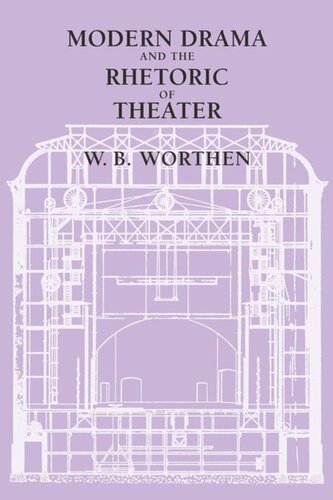

Most ebook files are in PDF format, so you can easily read them using various software such as Foxit Reader or directly on the Google Chrome browser.
Some ebook files are released by publishers in other formats such as .awz, .mobi, .epub, .fb2, etc. You may need to install specific software to read these formats on mobile/PC, such as Calibre.
Please read the tutorial at this link: https://ebookbell.com/faq
We offer FREE conversion to the popular formats you request; however, this may take some time. Therefore, right after payment, please email us, and we will try to provide the service as quickly as possible.
For some exceptional file formats or broken links (if any), please refrain from opening any disputes. Instead, email us first, and we will try to assist within a maximum of 6 hours.
EbookBell Team

5.0
98 reviewsThe history of drama is typically viewed as a series of inert "styles." Tracing British and American stage drama from the 1880s onward, W. B. Worthen instead sees drama as the interplay of text, stage production, and audience.
How are audiences manipulated? What makes drama meaningful? Worthen identifies three rhetorical strategies that distinguish an O'Neill play from a Yeats, or these two from a Brecht. Where realistic theater relies on the "natural" qualities of the stage scene, poetic theater uses the poet's word, the text, to control performance. Modern political theater, by contrast, openly places the audience at the center of its rhetorical designs, and the drama of the postwar period is shown to develop a range of post-Brechtian practices that make the audience the subject of the play.
Worthen's book deserves the attention of any literary critic or serious theatergoer interested in the relationship between modern drama and the spectator.